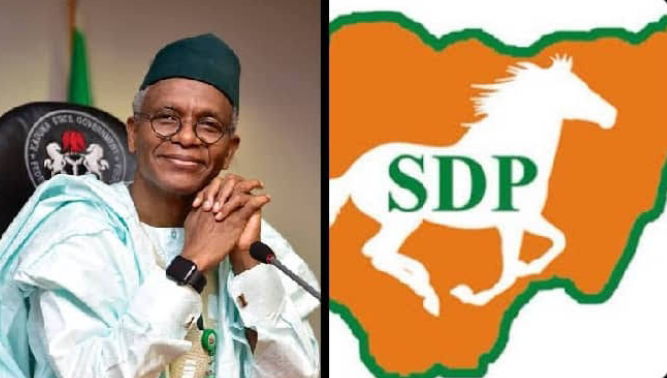Rivers State is not a good hunting ground for APC and Buhari
Published on 2016 March 22, Tuesday Back to articles
Map showing Nigeria’s south, including Rivers State, where early results from the re-run of the elections do not bode well for the APC.

Early results from the rerun elections for the 22 State Assembly, 12 House of Representatives, and three senatorial seats in Rivers State show that the opposition Peoples Democratic Party (PDP) will once again win the majority of positions on offer.
As Nigeria Politics & Security demonstrates, Buhari and his party face a real problem in the South East and South South states, which they will struggle to overcome.
Although the ruling All Progressives Congress (APC) will find it difficult to admit, their chances of winning any election in the oil rich Rivers State are slim. The party remains highly unpopular there.
Their South South geopolitical zone ‘leader’, Rotimi Amaechi, the Minister of Transport who served as Chairman of Buhari’s elections campaign committee, is not only considered a turncoat by many in the region (he defected from the PDP) but is also perceived to have used state funds to finance President Muhammadu Buhari’s presidential campaign against former president Goodluck Jonathan.
The latter was the first president to come from the Niger Delta, increasing his appeal in the region.
As was expected, the polls have been marred by violence, with the police confirming that at least four people died. After announcing results in one federal and nine state constituencies, the Independent National Electoral Commission (INEC) then declared that it was ‘compelled to suspend all further action concerning the exercise in all the other constituencies in the State’, citing violence and attacks on INEC officials.
Niger Delta militants have played a key role in the elections, on both sides of the political divide, resulting in the violence witnessed around these polls.
As they did in Bayelsa State (see Nigeria Politics & Security – 11.01.16), the Niger Delta militants see this election as an opportunity to show their displeasure with the Buhari administration.
The agitation in the creeks is driven by the perception that the Federal Government is only interested in the crude oil extracted from the region rather than its people, or economic and social development.
The fact that Buhari defeated a son of the Niger Delta in Goodluck Jonathan (who is from Bayelsa), the significantly increased military presence, and the prosecution of former militant leader Government ‘Tompolo’ Ekpemupolo have all served to entrench a siege mentality in the region. This has made the APC and Buhari unpopular.
One big problem for Buhari and the APC is that without gaining real political power in the region, they cannot reverse this perception, which will continue to fuel militancy in the creeks and threaten Nigeria’s oil production.
But there are indications that, with rising violence, the stage is being set for the declaration of a state of emergency in Rivers State, which could possibly lead to the removal of the governor. On 16 March President Buhari promised ‘decisive punishment’ for those instigating violence in the state.
However, the Federal Government will have to carefully consider any move to declare a state of emergency and removing the governor as it would likely lead to a significant spike in militancy, possibly to the levels seen in 2007. That surge cut Nigeria’s crude oil production by almost half.
Rivers State is dominated by two ethnic groups with a grudge against the Buhari government; the Igbos, who have increased their agitation for an independent Biafra under the present government, and the Ijaws, Goodluck Jonathan’s ethnic group.



